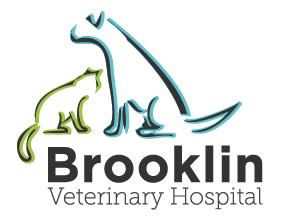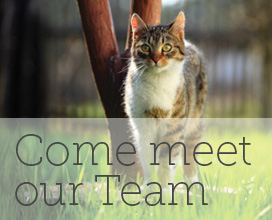Library
-
Choke is a relatively common condition that occurs when food or a foreign body blocks the horse's esophagus (gullet), which is the tube that takes food from the back of the mouth (pharynx) to the stomach.
-
Before getting a reptile, research all aspects of reptile ownership, including the appropriate reptile for your lifestyle, how to provide it with a proper diet, suitable housing, and a healthy, stimulating environment. All reptiles need to be examined by a reptile-savvy veterinarian immediately after purchase or adoption , and then at least annually after that. These pets usually do not act sick until they are very sick and need immediate veterinary attention. Regular veterinary care, plus an informed, knowledgeable pet owner, greatly reduces the likelihood of illness and death in these pets.
-
Your cat's skin and coat condition are good indicators of her health. A healthy coat should be shiny and smooth, not brittle or coarse, and healthy skin should be supple and clear, not greasy, flaky, or bumpy. Selective breeding has led to the development of cats with various coat characteristics requiring varying grooming needs. To maintain healthy skin and coat, your cat also requires a properly balanced diet.
-
The general condition of your dog's skin and coat are good indicators of his health. A healthy coat should be shiny and smooth, not brittle or coarse, and healthy skin should be supple and clear, not greasy, flaky, or bumpy. Selective breeding has led to the development of dogs with various coat characteristics requiring varying grooming needs. Nutrition also plays an important role in skin and coat maintenance.
-
Cockatiels make excellent first birds for families. Larger than budgies and smaller than larger parrots, these entertaining birds are easy to maintain and provide endless hours of entertainment and companionship. They are beautiful flyers and enjoy lots of activity and play. Cockatiels love to chew, so providing bird-safe toys will distract them from unwanted destructive chewing. They may be adopted from shelters or purchased from a pet store or a reputable breeder. They require annual, routine veterinary health check-ups to help prevent disease and help maintain a long-lasting, healthy relationship between you and your bird.
-
Cockatoos are a suitable family pet for families with adult children. Their jumpy nature and strong bite make them inappropriate for families with young children. These birds are high maintenance both physically and emotionally, as they demand a lot of attention and a great deal of time outside their cages. Without adequate attention, cockatoos sometimes become excessively boisterous and are potentially destructive. Cockatoos need to chew, so provide a continuous supply of non-toxic wood or cardboard bird-safe toys. Cockatoos may be adopted from shelters or purchased from pet stores or reputable breeders. They require annual, routine veterinary health check-ups to help prevent disease.
-
The term colic simply means abdominal pain. There are many causes of colic and symptoms range from very mild to violent.
-
Choosing the right collar or harness for a dog requires understanding how each device works and what is best for the dog and the owner. Correct selection, fit, and use are crucial for any training tool's success.
-
Pet birds often become ill when they are not cared for or fed appropriately. Birds can develop infections with bacteria (e.g., Chlamydia psittaci) and parasites (e.g., Giardia). They also commonly suffer from reproductive problems (e.g., egg binding and tumors) and feather-picking. Birds on all-seed, high-fat diets may become obese and develop fatty liver syndrome. Older birds may develop cloacal papillomas or cancer. Your veterinarian familiar with birds will formulate an appropriate diagnostic and treatment plan if your pet bird becomes ill.
-
Common conditions of pet tortoises include: metabolic bone disease (MBD), pyramiding, vitamin A deficiency, respiratory diseases, abscesses, shell infections, shell trauma, and parasites. This handout outlines signs and treatments for each of these conditions. Seek immediate veterinary care if there is any deviation from normal in your pet tortoise.



